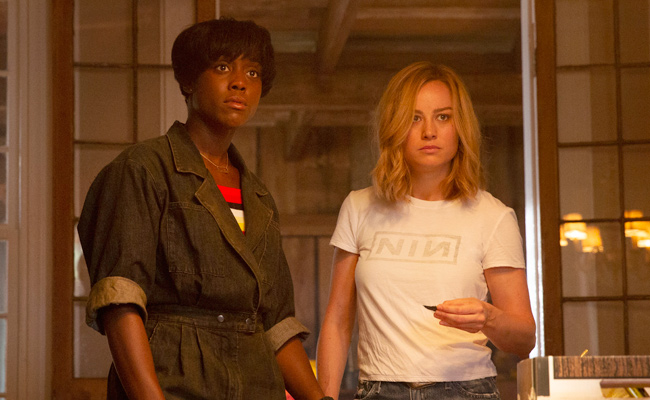
Coming out of Captain Marvel I was struck by how difficult it was to form any meaningful reaction to it at all. How was it? It was just fine. Some stuff happened, we had a couple of laughs, there was a cat, I was never bored. And it was so mercifully short! Only a smidge over two hours.
There was a time when I considered writing television reviews an absurd proposition. It comes on, you watch it, and you wait for the next episode. The only review you need is whether you watch the next one. These days I find myself thinking a lot about television and movies on streaming and very little about the “big” movies we’re all expected to see opening week, and to, presumably, discuss. What did we think? Does it matter? Let’s just wait for the next episode.
People are going to fewer movies these days, and studios are putting significant money into fewer films. This is the franchise era of filmmaking, where “big brands” — Star Wars, Marvel, etc. — seem to be the only things that get people into theaters anymore. Everyone’s trying to recreate them while only a few succeed. We jeer at the failures (The Mummy, anyone?) and, increasingly, shrug at Marvel’s continued success. Marvel has become the New England Patriots of movies, kind of dull even when they’re good. When big brands are the only thing, what happens when they aren’t that interesting anymore?
More than anything, I was struck by Captain Marvel‘s overwhelming just fine-ness. It’s an origin story for Brie Larson’s Captain Marvel, the 90s-set tale of how she fell to Earth during an intergalactic war between the Krees and the Skrulls. The Krees, led by Jude Law, have glowing eyes and think of themselves as noble warrior heroes who serve a supreme leader made of AI (actually a beautiful satire of neoliberalism if they’d seen it through). The Skrulls, led by Ben Mendolsohn, are a pointy-eared race of shape-shifting goblins, with Australian accents and mouths that look like buttholes (Australians, essentially). But all is not as it initially appears.
The twist is clever (enough), the message vaguely anti-war, with vague parallels to Trump’s wall and to the idea of “protecting the border” and so forth. Brie Larson is a capable actress and suitably heroic (though she runs kind of funny). Samuel Jackson and Ben Mendelsohn are enjoyable as always, and Clark Gregg, as Nick Fury’s superfluous sidekick Agent Coulson, still seems slightly out of place, like he should be playing a cop in a Kevin James sitcom.
Captain Marvel‘s action choreography is more fun than it is in a lot of these movies (it’s too bad they spoiled the scene of Brie Larson beating up an old lady in the trailer). There’s space action, which is extremely Star Wars-y, and the ’90s references are reasonably enjoyable. It’s set in 1995, though it plays “Celebrity Skin” by Hole over the end credits, which didn’t come out until ’98, when Courtney Love was already well along in her transition from heroin grunge rocker to indie actress (sorry, the “only ’90s kids…” thing cuts both ways).
Narratively, Captain Marvel never quite musters the symbolic oomph of Black Panther. It lacks something that would make it a landmark rather than a bridge. It feels like it has enough subtext to keep the writers (Anna Boden and Ryan Fleck) interested, but not quite enough to qualify them as inspired. But also no one destroys a portal and the fate of the entire universe never hangs in the balance… which was nice.
Captain Marvel is a female superhero, of course — Marvel’s first to topline a movie — and there’s a message in the movie about not letting people drag you down or tell you that you can’t do something because you’re a girl. It felt simultaneously less tryhard than the recent Serena Nike ad, and also a little derivative of the recent Serena Nike ad. It felt like the kind of broadly empowering corporate speak that you’d have to be a troll to entirely hate and a pod person to entirely love, a blandly “good” message dazzlingly delivered. Again, it was fine. It feels like it’s going through the motions of being something new without being entirely convinced of it.
There’s plenty to enjoy about Captain Marvel and very little to hate, but you have to wonder if Marvel has become the victim of its own success. What they’ve done with movies is unprecedented. Captain Marvel is the 21st movie of the Marvel Cinematic Universe (MCU), all wildly successful and all adhering to the same general style guide. But there’s probably a reason most franchises never make it to 21 iterations, and especially 21 iterations in less than 11 years.
Captain Marvel is trapped in its need to be big, to be relevant, to be important, to simultaneously be something different and something the same. It aims merely to keep us watching. And, for now, we are.
Vince Mancini is on Twitter. You can find more of his reviews here.
